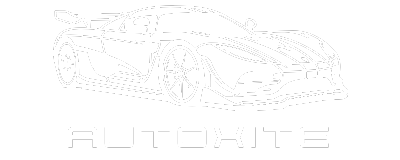Introduction: Why Are Koenigsegg Cars So Expensive?
The world of Koenigsegg hypercars is synonymous with exclusivity, innovation, and staggering price tags. These vehicles are not merely modes of transportation; they are engineering marvels crafted for a select clientele who demand the absolute pinnacle of performance and luxury. The high cost of a Koenigsegg reflects more than just materials and labor—it represents the brand’s relentless pursuit of automotive perfection, groundbreaking technology, and a driving experience few will ever know firsthand.
From their carbon fiber monocoques to hand-built powertrains, every Koenigsegg is a statement piece in the automotive world. The question persists: what truly drives the astronomical prices behind these machines?
What Defines a Koenigsegg as ‘Most Expensive’?
When discussing the most expensive Koenigsegg models, several factors come into play. Price is influenced not only by the base cost but also by rarity, bespoke options, technical innovation, and market demand. Special editions, one-off commissions, and models with limited production runs often command the highest values.
Ultimately, a Koenigsegg earns its place among the most expensive when it combines cutting-edge technology, scarcity, and a level of personalization that sets it apart from both its siblings and competitors.
Brief History of Koenigsegg: Pioneering Hypercar Excellence
Founded in 1994 by Christian von Koenigsegg in Sweden, Koenigsegg Automotive set out to create the world’s greatest supercar. The company quickly established a reputation for radical engineering, record-setting speed, and an uncompromising approach to quality. Over the years, Koenigsegg has introduced innovations such as the carbon fiber monocoque, the Freevalve engine, and direct drive hybrid systems.
Each milestone in Koenigsegg’s history has pushed the boundaries of what’s possible, cementing its status as a leader in the hypercar segment.
Top 10 Most Expensive Koenigsegg Models Ever Made
The Koenigsegg lineup boasts some of the most valuable and sought-after hypercars in existence. Let’s examine the standout models that have commanded the highest prices.
Koenigsegg CCXR Trevita: The Diamond on Wheels
The Koenigsegg CCXR Trevita is legendary for its unique diamond weave carbon fiber finish. Only two were produced, and the shimmering effect under sunlight is nothing short of mesmerizing. This model’s rarity and bespoke craftsmanship have placed it among the world’s most expensive cars, with prices exceeding $4.8 million at auction.
Koenigsegg Jesko Absolut: The Pursuit of Speed
The Jesko Absolut is Koenigsegg’s ultimate speed machine, engineered for minimal drag and maximum velocity. Its projected top speed, advanced aerodynamics, and limited production have made it a collector’s dream. For a thorough analysis of its pricing and value proposition, we encourage readers to learn more in our guide to the Jesko Absolut’s cost and value.
Koenigsegg One:1: The Megacar Revolution
The One:1 introduced the concept of a “megacar” with its 1,341 horsepower and one-to-one power-to-weight ratio. Limited to just seven units, its exclusivity and technological breakthroughs have made it a true collector’s item, with prices soaring past $7 million in private sales.
Koenigsegg Regera: Hybrid Luxury Redefined
Combining a twin-turbo V8 with three electric motors, the Koenigsegg Regera offers astonishing acceleration and seamless power delivery. Its innovative direct drive system and luxurious appointments distinguish it as a top-tier hybrid hypercar, with values comfortably above $2 million.
Koenigsegg Agera RS: Record-Breaking Performance
The Agera RS achieved global fame after setting multiple speed records, including the world’s fastest production car. Its blend of performance, rarity, and historical significance has secured its place among the most expensive Koenigseggs ever produced.
Koenigsegg Gemera: The Four-Seater Hypercar
Breaking convention, the Gemera offers four seats and a hybrid powertrain, all while delivering hypercar performance. Its unique configuration and limited availability make it a standout in Koenigsegg’s portfolio, appealing to collectors seeking both speed and practicality.
Koenigsegg Jesko: Engineering Mastery
The Jesko represents a leap forward in chassis design, aerodynamics, and engine technology. Its advanced features and limited production run contribute to its high value. For those curious about current market pricing, we’ve covered the topic extensively in our post on the latest Jesko price insights.
Koenigsegg Agera Final Edition: The Ultimate Sendoff
Marking the end of the Agera era, the Final Edition models were tailored to individual customer specifications, making each one unique. Their limited numbers and bespoke features have ensured enduring value on the secondary market.
Koenigsegg CC8S: The Original Hypercar
The CC8S launched Koenigsegg’s legacy, introducing the world to Swedish hypercar engineering. Its historical importance, combined with low production numbers, makes it an appreciating asset for dedicated collectors.
Koenigsegg Agera One of 1: Bespoke Excellence
The aptly named Agera One of 1 was customized to a single buyer’s exact specifications, representing the ultimate in exclusivity. Its status as a one-off creation commands a premium far above standard production models.
Koenigsegg CCR: The Early Powerhouse
As one of Koenigsegg’s earliest models, the CCR delivered record-breaking speed and innovative engineering. Its significance in the brand’s evolution, coupled with its scarcity, ensures strong demand and premium valuations.
How Are Koenigsegg Prices Determined?
Determining the price of a Koenigsegg hypercar involves a complex interplay of factors. While the base price sets the foundation, final costs are shaped by customization, edition rarity, and ownership preferences. Each vehicle is tailored to the client, making pricing as unique as the cars themselves.
Base Price vs. Final Price: What’s the Difference?
The base price of a Koenigsegg typically includes the standard configuration and performance features. However, this figure rarely reflects what clients ultimately pay. The final price often climbs significantly due to optional extras, custom finishes, and tailored engineering requests.
How Much Do Customizations Add to the Cost?
Customization is a hallmark of Koenigsegg ownership. Clients frequently commission unique interiors, exterior colors, and performance upgrades, each of which adds to the overall price.
What Are the Most Expensive Koenigsegg Options?
Among the priciest options are:
- Exposed carbon fiber bodywork
- Diamond-dust infused paint finishes
- Gold-plated engine components
- Custom wheel designs
- Personalized interior materials such as rare leathers and bespoke stitching
These additions can individually cost hundreds of thousands of dollars, dramatically increasing the car’s value.
How Do Special Editions Affect Pricing?
Special editions—such as the Jesko Absolut or the Agera Final Edition—are produced in extremely limited numbers. Their unique features, commemorative elements, and exclusivity significantly raise their market value. As we outlined in our feature on what to expect from Jesko Absolut pricing, collectors often pay a premium for these rare vehicles.
The Impact of Limited Production on Value
Koenigsegg’s philosophy centers around low-volume production. By restricting the number of cars built, the company ensures that each model remains highly exclusive. This scarcity, combined with demand from global collectors, drives prices even higher on both the primary and secondary markets.
Are Koenigseggs More Expensive Than Other Hypercars?
In the rarefied world of hypercars, Koenigsegg frequently finds itself compared to other elite brands. Price, performance, and exclusivity are the main points of comparison that inform buyer decisions.
Koenigsegg vs. Bugatti: Who Wins the Price War?
Bugatti’s models, such as the Chiron and Veyron, are often mentioned alongside Koenigsegg for their astronomical price tags. However, Koenigsegg’s limited production and advanced technology often result in even higher prices for certain models. The choice between the two typically comes down to personal preference and intended use, whether for ultimate speed or luxury grand touring.
Koenigsegg vs. Pagani: Which Is Rarer and Pricier?
Pagani is another boutique manufacturer known for spectacularly expensive, hand-built cars. Koenigsegg’s focus on innovation and its smaller production numbers can make its top models rarer and, in some cases, pricier than even the most exclusive Paganis.
Koenigsegg vs. Ferrari and Lamborghini: How Do They Compare?
While Ferrari and Lamborghini produce high-performance supercars, Koenigsegg occupies a different stratum. Its vehicles typically cost several times more, reflecting advanced engineering, lower production volumes, and a greater degree of personalization. For enthusiasts comparing price and exclusivity, Koenigsegg consistently leads the pack.
Breaking Down the Real Cost of Owning a Koenigsegg
Beyond the sticker price, Koenigsegg ownership entails a range of ongoing costs. From taxes to maintenance, understanding these expenses is crucial for any prospective buyer.
Upfront Purchase Price: What’s Included?
The initial purchase price generally covers the car’s base configuration, standard performance upgrades, and factory warranty. However, many buyers opt for additional features, which can significantly inflate the price before the car even leaves the showroom.
Taxes, Import Duties, and Registration Fees
Depending on the country of delivery, buyers may face substantial taxes, import duties, and registration fees. These can easily add 10–30% to the final cost, making it essential to factor in these expenses during the purchasing process.
Insurance Costs: How Much Does It Really Cost to Insure a Koenigsegg?
Insuring a Koenigsegg is no small matter. Annual premiums often reach tens of thousands of dollars, reflecting the car’s value, repair costs, and limited availability of replacement parts. Insurers typically require specialized coverage tailored to exotic vehicles.
For a deeper dive into the nuances of insuring high-value vehicles, our analysis of the Jesko Attack price and ownership costs provides further insights.
Maintenance and Servicing: Annual Expenses
Regular maintenance is key to preserving the performance and value of a Koenigsegg. Annual servicing by certified technicians can cost anywhere from $10,000 to $20,000, depending on usage and model. Parts availability and labor expertise are major contributors to these figures.
Depreciation and Resale Value: Do Koenigseggs Hold Their Worth?
Unlike mass-produced luxury vehicles, Koenigseggs often appreciate in value due to their scarcity and desirability. Well-maintained examples, especially limited editions, can sell for more than their original purchase price at auction or through private sales.
Financing a Koenigsegg: Is It Possible?
While most Koenigsegg buyers pay in full, some specialized lenders offer financing options for luxury vehicles. These loans typically require substantial down payments and higher interest rates, reflecting the car’s unique status and potential for appreciation.
What Are the Hidden Costs of Koenigsegg Ownership?
Owning a Koenigsegg extends beyond the obvious financial commitments. There are several less-discussed expenses that can catch new owners by surprise.
Storage and Security: Protecting Your Investment
Given their value, Koenigseggs require secure, climate-controlled storage. Many owners invest in custom garages, advanced security systems, and even private car vaults to safeguard their vehicles from theft, vandalism, and environmental damage.
Shipping and Transportation Expenses
Transporting a Koenigsegg between locations or to international events involves specialized carriers, insurance, and sometimes air freight. Each move can cost thousands of dollars, especially when crossing borders or attending distant shows.
Specialized Fuel and Consumables
Koenigseggs are designed to run on high-octane fuels and, in some cases, E85 biofuel. Sourcing the correct fuel is crucial for optimal performance, and costs can add up quickly for frequent drivers. Tires, brakes, and consumables are also high-end and priced accordingly.
Track Day and Event Participation Fees
Many Koenigsegg owners participate in exclusive track days and automotive gatherings. Entry fees, travel, and logistical support for these events can represent a significant ongoing investment.
Why Do Koenigseggs Appreciate in Value?
Several unique factors contribute to the remarkable appreciation seen in Koenigsegg values over time. These go beyond the usual collector car trends.
Limited Production Runs and Exclusivity
Scarcity is a powerful driver of value. With production numbers often in the single digits, each Koenigsegg becomes a coveted artifact for enthusiasts and investors alike.
Celebrity and Collector Influence
Celebrity ownership and high-profile collectors further elevate the status of Koenigsegg models. Media attention and auction results can send prices even higher, creating a feedback loop of desirability and value.
Technological Innovations and Patents
Koenigsegg’s commitment to innovation means every new model debuts proprietary technology. Patents on systems like Freevalve and Direct Drive ensure each car remains ahead of the curve, both in performance and collectibility.
As experts often say:
“True value in the hypercar world is created by a perfect storm of rarity, innovation, and reputation—qualities Koenigsegg has mastered.”
What Makes Koenigsegg Engineering So Expensive?
The reputation of Koenigsegg engineering is built on relentless innovation, attention to detail, and use of the finest materials. Each aspect of construction is designed for performance, longevity, and exclusivity.
Advanced Materials: Carbon Fiber and Beyond
Koenigsegg pioneered the use of carbon fiber monocoques and body panels. This lightweight, ultra-strong material is costly to produce and requires skilled labor, contributing significantly to overall vehicle price.
Hand-Crafted Assembly: The Human Touch
Every Koenigsegg is assembled by hand, with meticulous attention to every detail. Artisans spend hundreds of hours on each car, ensuring that every piece fits perfectly and meets the brand’s rigorous standards.
Unique Powertrains and Performance Tech
From twin-turbo V8s to hybrid-electric systems, Koenigsegg develops its own powertrains with custom hardware and software. This vertical integration allows for unmatched performance but increases development and production costs.
Proprietary Technologies: Freevalve, Direct Drive, and More
Innovations like Freevalve camless engines and the Direct Drive hybrid system are unique to Koenigsegg. Developing, patenting, and implementing these technologies requires substantial investment, reflected in the final vehicle price.
How Does Koenigsegg Personalization Drive Up Prices?
Personalization is central to the Koenigsegg experience. Each buyer can commission a vehicle that reflects their tastes, adding to the car’s uniqueness—and cost.
Bespoke Interiors: Materials and Design Choices
Clients select from a vast array of premium materials, including rare leathers, custom embroidery, and even precious metals. Interior design is often tailored to specific requests, elevating the sense of exclusivity and luxury.
Custom Paint and Exterior Finishes
Koenigsegg offers an extensive palette of paint options, from classic hues to complex multi-stage finishes. Exposed carbon fiber, color-shifting paints, and special effects can add both visual impact and significant expense.
Commissioning a One-Off Koenigsegg: The Ultimate Status Symbol
For those seeking the pinnacle of exclusivity, Koenigsegg allows the creation of true one-off vehicles. These projects require close collaboration with the factory, resulting in a car that is unmatched in the world—a process that commands a correspondingly high price.
How Does the Buying Process Work for a Koenigsegg?
Purchasing a Koenigsegg is a unique journey, blending anticipation, collaboration, and meticulous attention to detail. Every step is designed to cater to the client’s desires while maintaining the brand’s uncompromising standards.
Working with Dealers and the Factory
Most buyers begin their journey with an authorized dealer, who facilitates communication with the Koenigsegg factory. Clients are guided through the configuration process, selecting everything from performance options to interior finishes.
Wait Times and Production Schedules
Due to the hand-built nature of each car and limited production slots, wait times can extend from several months to over a year. The anticipation only adds to the excitement and exclusivity of the experience.
Delivery Experience: What to Expect
Upon completion, owners are often invited to the Koenigsegg factory in Sweden for a personal handover. This immersive experience includes a factory tour, technical briefing, and sometimes even a test drive with company founder Christian von Koenigsegg himself.
Are Koenigseggs Worth the Price? Owner Perspectives
The value of a Koenigsegg cannot be measured purely in monetary terms. For owners, the experience transcends numbers, encompassing performance, craftsmanship, and the thrill of owning something truly unique.
Interviews with Koenigsegg Owners
Owners frequently describe an emotional connection to their cars, emphasizing the joy of driving, the pride of ownership, and the satisfaction of possessing a work of automotive art. Many cite the brand’s personal approach and commitment to customer satisfaction as key factors in their decision.
Does the Driving Experience Justify the Cost?
Behind the wheel, a Koenigsegg delivers sensations few cars can match—thunderous acceleration, razor-sharp handling, and an unmatched sense of occasion. Owners often say that the driving experience alone justifies the investment, especially when compared to other high-performance vehicles.
How Do Owners View Long-Term Value?
Many Koenigsegg owners view their cars as long-term assets, appreciating both the emotional and financial returns over time. The brand’s strong resale values and limited production runs reinforce this perspective.
Future of Koenigsegg Pricing: What’s Next for the Hypercar Market?
The hypercar market is evolving rapidly, with new technologies and shifting buyer preferences influencing future pricing trends. Koenigsegg remains at the forefront, pushing boundaries with every new model.
Will Electric and Hybrid Tech Affect Koenigsegg Prices?
As electrification becomes more prevalent, Koenigsegg’s expertise in hybrid technology positions the brand well for future growth. The integration of electric powertrains is likely to increase development costs, but also enhance performance and desirability, ultimately driving prices higher.
Predictions for Upcoming Models and Special Editions
Looking ahead, we anticipate that limited-run special editions and groundbreaking new models will continue to command premium prices. The appetite for exclusivity and innovation shows no signs of waning among hypercar enthusiasts.
Conclusion: The True Value Behind the Most Expensive Koenigseggs
Koenigsegg’s most expensive models represent far more than just extraordinary performance—they are the culmination of innovation, artistry, and exclusivity. For those who can afford them, these cars offer a driving experience and sense of ownership that is unmatched in the automotive world. As we have seen, the real cost of a Koenigsegg extends beyond the purchase price, encompassing a lifestyle and passion for the extraordinary.
For more insights and resources on high-performance vehicles, we recommend visiting Autoxite, where enthusiasts and collectors alike can stay updated on the latest trends and developments in the hypercar market.
Frequently Asked Questions About Koenigsegg Pricing
- What is the starting price for a Koenigsegg? Most new models begin at around $2 million USD, with final prices depending on customization and edition.
- Can you finance a Koenigsegg? Specialized lenders offer financing, though most buyers pay in full due to the car’s value and appreciation potential.
- How many Koenigseggs are produced each year? Typically, fewer than 50 cars are built annually, maintaining the brand’s exclusivity.
- Do Koenigseggs depreciate? Many models appreciate over time, especially rare editions and well-maintained examples.
- What makes a Koenigsegg more expensive than a Bugatti or Pagani? Koenigsegg’s innovation, limited production, and bespoke craftsmanship often result in higher prices compared to other hypercars.


